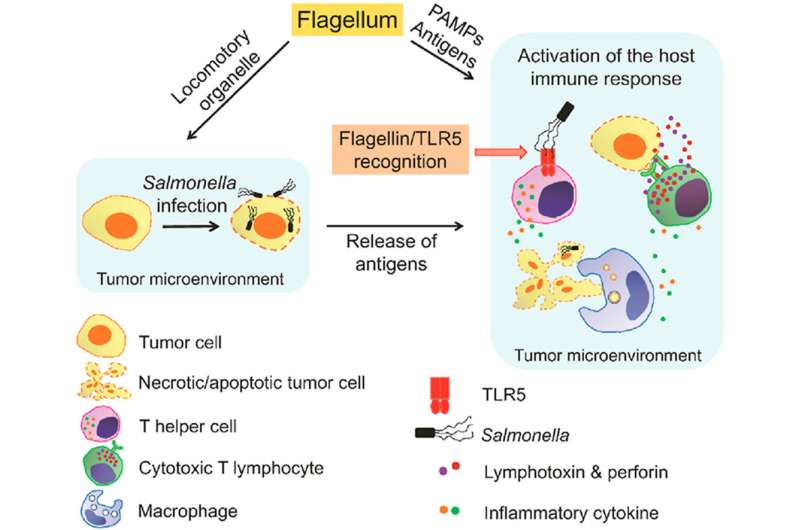
Salmonella mediated cancer therapy has achieved remarkable anti-tumor effects in experimental animal models, but the detailed mechanism remains unsolved. The authors of this article confirm the active involvement of the host immune response in this process by comparing the tumor-suppressive effects of Salmonellain immunocompetent and immunodeficient mice bearing melanoma allografts. Since flagella are key inducers of the host immune response during bacterial infection, flagella were genetically disrupted to analyze their involvement in Salmonella-mediated cancer therapy.
The results showed that flagellum-deficient strains failed to induce significant anti-tumor effects, even when more bacteria were administered to offset the difference in invasion efficiency. Flagella mainly activate immune cells via Flagellin/Toll-like receptor 5 (TLR5) signaling pathway. Indeed, we showed that exogenous activation of TLR5 signaling by recombinant Flagellin and exogenous expression of TLR5 both enhanced the therapeutic efficacy of flagellum-deficient Salmonella against melanoma.
Source: Read Full Article
